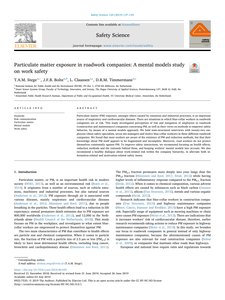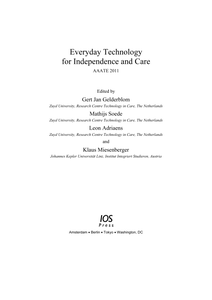The American company Amazon has made headlines several times for monitoring its workers in warehouses across Europe and beyond.1 What is new is that a national data protection authority has recently issued a substantial fine of €32 million to the e-commerce giant for breaching several provisions of the General Data Protection Regulation (gdpr) with its surveillance practices. On 27 December 2023, the Commission nationale de l’informatique et des libertés (cnil)—the French Data Protection Authority—determined that Amazon France Logistique infringed on, among others, Articles 6(1)(f) (principle of lawfulness) and 5(1)(c) (data minimization) gdpr by processing some of workers’ data collected by handheld scanner in the distribution centers of Lauwin-Planque and Montélimar.2 Scanners enable employees to perform direct tasks such as picking and scanning items while continuously collecting data on quality of work, productivity, and periods of inactivity.3 According to the company, this data processing is necessary for various purposes, including quality and safety in warehouse management, employee coaching and performance evaluation, and work planning.4 The cnil’s decision centers on data protection law, but its implications reach far beyond into workers’ fundamental right to health and safety at work. As noted in legal literature and policy documents, digital surveillance practices can have a significant impact on workers’ mental health and overall well-being.5 This commentary examines the cnil’s decision through the lens of European occupational health and safety (EU ohs). Its scope is limited to how the French authority has interpreted the data protection principle of lawfulness taking into account the impact of some of Amazon’s monitoring practices on workers’ fundamental right to health and safety.
MULTIFILE

The evolution of emerging technologies that use Radio Frequency Electromagnetic Field (RF-EMF) has increased the interest of the scientific community and society regarding the possible adverse effects on human health and the environment. This article provides NextGEM’s vision to assure safety for EU citizens when employing existing and future EMF-based telecommunication technologies. This is accomplished by generating relevant knowledge that ascertains appropriate prevention and control/actuation actions regarding RF-EMF exposure in residential, public, and occupational settings. Fulfilling this vision, NextGEM commits to the need for a healthy living and working environment under safe RF-EMF exposure conditions that can be trusted by people and be in line with the regulations and laws developed by public authorities. NextGEM provides a framework for generating health-relevant scientific knowledge and data on new scenarios of exposure to RF-EMF in multiple frequency bands and developing and validating tools for evidence-based risk assessment. Finally, NextGEM’s Innovation and Knowledge Hub (NIKH) will offer a standardized way for European regulatory authorities and the scientific community to store and assess project outcomes and provide access to findable, accessible, interoperable, and reusable (FAIR) data.
DOCUMENT

Background and aim – This paper studies urban decline, the processin which the built environment suddenly or gradually loses its practical,technical and economic functionality, resulting in it being abandonedby its legitimate occupants and neglected by its owners for an extended period of time. Recent European examples of urban decline fromaround the globe as well as five German examples were studied. This isfollowed by a reflection on the risks for public safety and public healththat these examples show and the possible role of facility managers indiminishing these risks.Methods / Methodology – Data were collected by means of desk research and direct observations.Results – At all locations public safety and public health risks were considerable. Direct observations at five German locations show extensive urban decline.Originality –Identifying safety and health risks in abandoned buildings and connecting these issues to the facility management profession offers a new perspective on dealing with urban decay.Practical or social implications – Abandoned buildings that are easily accessible to the public generate considerable risks for public safety and health. This paper calls for a debate about how to deal with these risks. Part of the debate should be whether or not such situations should be allowed to continue.Moreover, this paper suggests a prominent role for the facility management profession in order to deal with these safety and health issues.Type of paper – Research paper.
LINK
Particulate matter (PM) exposure, amongst others caused by emissions and industrial processes, is an important source of respiratory and cardiovascular diseases. There are situations in which blue-collar workers in roadwork companies are at risk. This study investigated perceptions of risk and mitigation of employees in roadwork (construction and maintenance) companies concerning PM, as well as their views on methods to empower safety behavior, by means of a mental models approach. We held semi-structured interviews with twenty-two employees (three safety specialists, seven site managers and twelve blue-collar workers) in three different roadwork companies. We found that most workers are aware of the existence of PM and reduction methods, but that their knowledge about PM itself appears to be fragmented and incomplete. Moreover, road workers do not protect themselves consistently against PM. To improve safety instructions, we recommend focusing on health effects, reduction methods and the rationale behind them, and keeping workers’ mental models into account. We also recommend a healthy dialogue about work-related risk within the company hierarchy, to alleviate both information-related and motivation-related safety issues. https://doi.org/10.1016/j.ssci.2019.06.043 LinkedIn: https://www.linkedin.com/in/john-bolte-0856134/
DOCUMENT

Purpose:The International Commission on Illumination (CIE) recommends researchers to investigate a widevariety of behavioural and health outcomes. However, researchers often investigate only a part of occupationalhealth (OH) in relation to light. A literature study (2002–2017) regarding the relationship between office lightingconditions and OH was performed to identify gaps and methodological issues.Method:The OH outcomes investigated in this paper were grouped according to the International Classificationof Diseases and analysed per category: physical and physiological health, mental health, eye health, sleep param-eters and visual comfort.Results:Findings from the literature study (20 eligible papers) showed that all OH aspects were mostly but notexclusively measured subjectively. Furthermore, most studies investigated only a fraction of office lighting par-ameters and OH aspects.Conclusions:It seems that Correlated Colour Temperature (CCT) and illuminance mainly correlate with OH.However, this may also be explained by gaps and methodological issues in studies described in eligible papers.Based on the literature study, an overview was composed elucidating gaps and methodological issues of officelighting and OH studies. It can be used to design and target the purpose of light and health research.
DOCUMENT

The inefficiency of maintaining static and long-lasting safety zones in environments where actual risks are limited is likely to increase in the coming decades, as autonomous systems become more common and human workers fewer in numbers. Nevertheless, an uncompromising approach to safety remains paramount, requiring the introduction of novel methods that are simultaneously more flexible and capable of delivering the same level of protection against potentially hazardous situations. We present such a method to create dynamic safety zones, the boundaries of which can be redrawn in real-time, taking into account explicit positioning data when available and using conservative extrapolation from last known location when information is missing or unreliable. Simulation and statistical methods were used to investigate performance gains compared to static safety zones. The use of a more advanced probabilistic framework to further improve flexibility is also discussed, although its implementation would not offer the same level of protection and is currently not recommended.
MULTIFILE

This essay explores the notion of resilience by providing a theoretical context and subsequently linking it to the management of safety and security. The distinct worlds of international security, industrial safety and public security have distinct risks as well as distinct ‘core purposes and integrities’ as understood by resilience scholars. In dealing with risks one could argue there are three broad approaches: cost-benefit analysis, precaution and resilience. In order to distinguish the more recent approach of resilience, the idea of adaptation will be contrasted to mitigation. First, a general outline is provided of what resilience implies as a way to survive and thrive in the face of adversity. After that, a translation of resilience for the management of safety and security is described. LinkedIn: https://www.linkedin.com/in/juul-gooren-phd-cpp-a1180622/
DOCUMENT

This paper presents the findings from a ‘Safety Differently’ (SD) case study in aviation, and specifically in a maintenance, repair and overhaul (MRO) organisation in Southeast Asia. The goal of the case study was to apply a new method of safety intervention that is part of the Safety Differently toolkit and utilises a bottom-up approach. This research tested the extent to which these interventions could be embedded into a continuous improvement program in a highly controlled environment, namely an Aviation MRO. The interventions (called micro-experiments, ME) are considered as a flexible tool, which allows testing of process improvements in a safe to fail way, empowering the lower levels of the organisation, challenging safety related issues and revealing key areas in need of transformation. The ideas for the interventions considered in the case study were retrieved from interviews conducted with 50 mechanics, and include issues to address aviation safety and occupational health as well as quality. We elected to include all three categories in this study as the ME approach is applicable to all of these. This MRO case study showcases the benefits and limitations of the ME in aviation, revealing the conditions under which it may become useful. Future studies should further explore the role of complex and heavily controlled industries in similar bottom up approaches, so that interventions can become part of a continuous improvement plan.
DOCUMENT

The sense of safety and security of older people is a widely acknowledged action domain for policy and practice in age-friendly cities. Despite an extensive body of knowledge on the matter, the theory is fragmented, and a classification is lacking. Therefore, this study investigated how older people experience the sense of safety and security in an age-friendly city. A total of four focus group sessions were organised in The Hague comprising 38 older people. Based on the outcomes of the sessions, the sense of safety and security was classified into two main domains: a sense of safety and security impacted by intentional acts and negligence (for instance, burglary and violence), and a sense of safety and security impacted by non-intentional acts (for instance, incidents, making mistakes online). Both domains manifest into three separate contexts, namely the home environment, the outdoor environment and traffic and the digital environment. In the discussions with older people on these derived domains, ideas for potential improvements and priorities were also explored, which included access to information on what older people can do themselves to improve their sense of safety and security, the enforcement of rules, and continuous efforts to develop digital skills to improve safety online. Original article at MDPI; DOI: https://doi.org/10.3390/ijerph19073960
MULTIFILE

Transitions in health care and the increasing pace at which technological innovations emerge, have led to new professional approach at the crossroads of health care and technology. In order to adequately deal with these transition processes and challenges before future professionals access the labour market, Fontys University of Applied Sciences is in a transition to combining education with interdisciplinary practice-based research. Fontys UAS is launching a new centre of expertise in Health Care and Technology, which is a new approach compared to existing educational structures. The new centre is presented as an example of how new initiatives in the field of education and research at the intersection of care and technology can be shaped.
DOCUMENT
